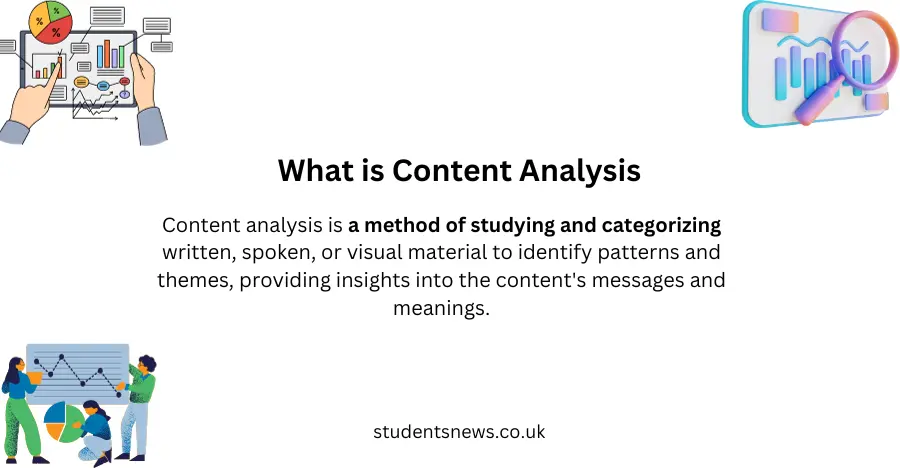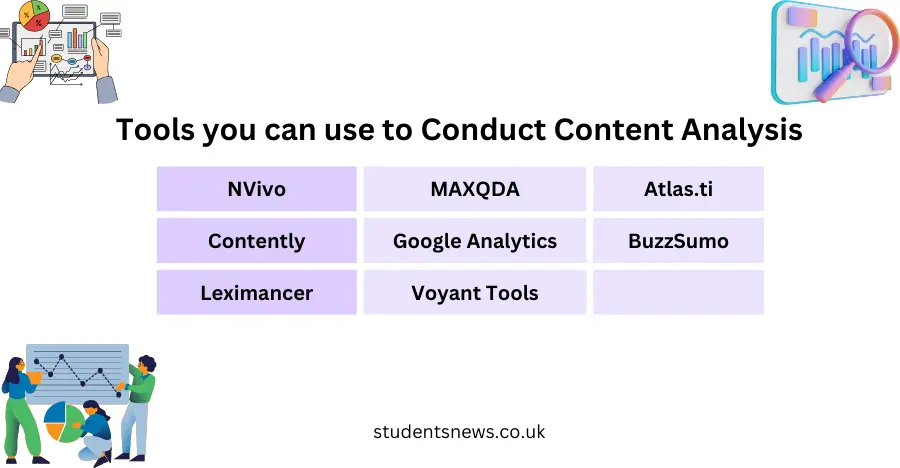In the ever-evolving landscape of digital marketing, creating high-quality and relevant content is crucial for success. However, the sheer volume of content generated online can be overwhelming. Every marketer should know how to conduct content analysis.

This is where content analysis tools come into play, offering marketers invaluable insights to optimize their strategies. In this article, we’ll explore the importance of content analysis tools and highlight some of the top tools available in the market.
Why Content Analysis Tools Matter:
Content analysis tools are instrumental in understanding the performance of your content and making data-driven decisions. By leveraging these tools, marketers can gain valuable insights into audience preferences, behavior, and engagement patterns. Here are some key reasons why content analysis tools are essential:
- Data-Driven Decision Making: Content analysis tools provide actionable data that empowers marketers to make informed decisions. Analyzing metrics such as user engagement, bounce rates, and click-through rates helps in refining content strategies for optimal results.
- Audience Understanding: These tools offer a deep understanding of your target audience. By analyzing demographics, interests, and online behavior, marketers can tailor content to resonate with their audience, ultimately increasing engagement and conversion rates.
- Competitive Analysis: Stay ahead of the competition by conducting in-depth analysis on your competitors. Content analysis tools allow you to identify trending topics, keyword strategies, and content gaps, enabling you to refine your approach and outperform your rivals.
- SEO Optimization: Search engines favor high-quality, relevant content. Content analysis tools help in optimizing your content for search engines by providing insights into keyword performance, content structure, and overall SEO effectiveness.
Top Content Analysis Tools:
Here is a list of free content analysis tools. You can also analyze content using thematic analysis tools by readings our article.
- Google Analytics: A staple for website analytics, Google Analytics provides a wealth of information on user behavior, traffic sources, and content performance. Marketers can track conversions, set goals, and optimize content based on real-time data.
- BuzzSumo: BuzzSumo is a powerful tool for content discovery and analysis. It helps identify trending topics, popular content formats, and key influencers in your industry. The tool also provides insights into social media engagement for a comprehensive content strategy.
- SEMrush: SEMrush is an all-in-one marketing toolkit that includes features for keyword research, SEO analysis, and content optimization. Marketers can track keyword rankings, analyze backlinks, and conduct in-depth competitor research.
- Yoast SEO: For WordPress users, Yoast SEO is an invaluable plugin for optimizing content. It provides real-time feedback on SEO best practices, readability, and keyword usage, helping writers create content that performs well in search engines.
Conclusion:
In the digital era, content analysis tools are indispensable for any marketer aiming to create a successful online presence. By leveraging these tools, businesses can refine their content strategies, connect with their target audience, and stay ahead in a competitive landscape. Whether you’re a seasoned marketer or just starting, incorporating content analysis tools into your toolkit is a strategic move towards achieving long-term success in the digital realm.



[…] Content analysis is a powerful research method that allows researchers to systematically analyze and draw meaningful insights from various forms of communication using certain tools and softwares. […]